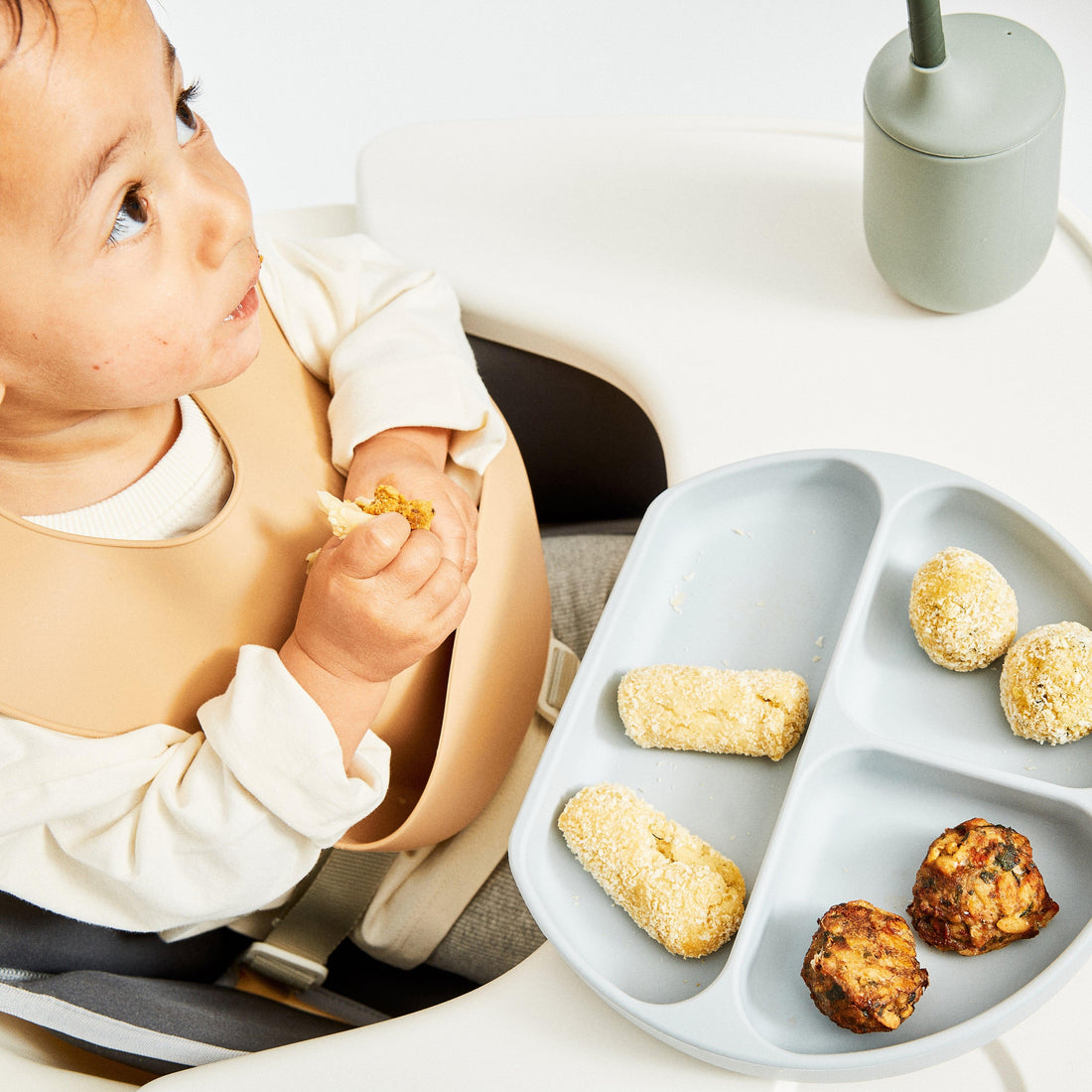Here, Bouchee's go-to nutritionist Courtney Bates shares her top tips for getting kids the nutrients they need.
Let's set the scene. It's 2019, Jessie and Beatrice are mother's group mates navigating the milestones and mindshifts of motherhood alongside one another. Then their kids hit solids age, and mealtimes become a constant mountain for both of them to climb. "We were constantly in the kitchen experimenting and whipping up all kinds of purees and fingerfoods with one goal in mind: to nourish our babies. Plus, it would be nice if it were an enjoyable time for of all of us," Jessie says. "Feeding our children is a simple concept on paper. We prepare it. They eat it. But it’s not always as easy as it sounds." The friends searched for a ready-made alternative with no such luck, so they created one. Bouchee (formerly Le Bub), is a range of healthy, nutritious finger foods for toddlers and children. They are delivered frozen and ready for you to heat and serve for fuss-free lunches and dinners (where nothing ends up on the floor and they don't realise they've eaten a heap of veggies). Here Jessie and Beatrice's go-to nutritionist Courtney Bates shares her top tips for getting kids the nutrients they need.
What is difficult about nutrition and toddlers?
Toddler fussiness and moodiness at meal times is not uncommon. Just like seasons, food phases in toddlers come and go. One day they may love bananas, the next day they may hate them!
What are some ways of working around these issues?
Continue to expose toddlers to foods, even if they refuse them sometimes. They say it can take anywhere from 10 to 30 exposures of a food for it to be tried. Toddler moodiness at mealtimes is often related to them wanting to explore their independence and their growing curiosity in the world, meaning they simply have better things to do than to stop and eat. Give them an opportunity to help with decision making at mealtimes for example "would you like broccoli or peas with dinner?". Get them involved with meal preparation in an age appropriate way for example grating a carrot or chopping up fruit. Another thing to consider is if they're overtired at mealtimes in which case you may need to bring mealtime earlier.
What should you know if you're anxious about them not eating the right things?
Since this is the age when most children get distracted easily and fussy eating usually begins, it can be hard to feel confident they're getting enough food to help them grow. Trusting your toddler knows their body and knows what they need is important. Make sure responsive feeding is happening, which is you deciding what, where and when to serve food and allowing them to choose what they eat. If you're offering all 5 food groups (fruits, vegetables, meat or protein alternatives, dairy or dairy alternatives, grains and cereal foods) then it's likely your child is getting different macronutrients and micronutrients and getting good nutrition.
What are some tips and tricks you have for keeping them well-fed?
Kids thrive on a meal structure so try and offer regular scheduled meals and snacks for predictability for your child. Think of snacks as mini meals and an opportunity to get good nutrients in by offering a balance of protein, fats and carbohydrates such as crackers with nut butter, fruit smoothie, sultanas and cubed cheese, chopped carrots and hommus. Try encourage regular, predictable snacks verses grazing all day.
Bouchee delivers Australia-wide (excluding WA). Order now from their website.




















